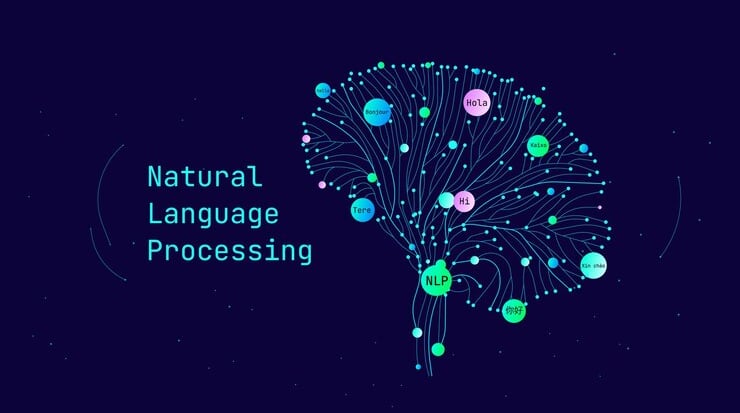How NLP Helps Search Engines Understand Content Better
"The best search engines don’t just match keywords—they understand meaning." Imagine asking a search engine, "What’s the best way to train for a marathon?" You’re not just looking for any random page with the words “train” and “marathon”. You want advice, tips, maybe even a training plan. But how does Google—or any search engine—figure that out?
2/3/20253 min read


The answer lies in Natural Language Processing (NLP). This powerful technology helps search engines go beyond simple keyword matching. It enables them to understand what you're really asking, interpret context, and deliver the most relevant results.
Let’s dive into how NLP is transforming search engines, making them smarter and more intuitive.
1. Search Engines Now Understand, Not Just Match
A few years ago, if you searched for “apple benefits”, search engines might have struggled. Are you asking about health benefits of apples or financial benefits of investing in Apple Inc.? Traditional search engines relied on exact keyword matches, often leading to confusing results.
NLP changes the game. It helps search engines grasp context and intent. Instead of just matching words, it considers the relationships between them, their meanings, and even their placement in a sentence.
For example, Google's BERT (Bidirectional Encoder Representations from Transformers) update was a massive leap. It improved Google’s ability to understand natural, conversational language. This means when you type “How can I improve my writing skills?”, Google now knows you’re looking for writing tips, not grammar rules.
2. It Helps Search Engines Handle Complex Questions
We don’t always search in perfect, structured sentences. Sometimes we type:
“Best laptop for video editing under $1000”
“Which city has better weather: New York or San Francisco?”
“Who won the last FIFA World Cup?”
Older search engines struggled with these. NLP, however, allows them to break down long, complex queries into understandable pieces. It picks out key details like intent, comparisons, and constraints (e.g., price limits in the laptop query).
This is why search engines today are so much better at understanding and answering even tricky, multi-layered searches.
3. It Recognizes Entities & Their Relationships
Search engines don’t just see words—they see things.
Take the search “Einstein’s theory about time”. NLP helps the search engine recognize that:
Einstein is a person
Theory refers to theory of relativity
Time relates to physics
Instead of just looking for pages containing “Einstein”, “theory”, and “time”, NLP understands the relationship between these terms and delivers the most relevant results.
This is why when you search for a famous person's name, you often get a knowledge panel with their biography, achievements, and related people—not just random web pages with their name.
4. It Helps Search Engines Understand Synonyms & Variations
People search in many different ways.
One person might type “cheap flights to Paris”, while another might say “affordable airfare Paris”. Before NLP, search engines treated these as completely different searches. Now, they know that cheap and affordable mean the same thing in this context.
Similarly, NLP helps search engines handle:
Misspellings ("recipie" → "recipe")
Regional language differences (“truck” in the US, “lorry” in the UK)
Acronyms and abbreviations (“NYC” → “New York City”)
This means no matter how you phrase your search, you’ll likely get what you’re looking for.
5. It Makes Voice Search Possible
Think about how you type a search versus how you say it out loud.
When typing, you might write: “weather tomorrow NYC”. But when speaking, you’d probably say: “What’s the weather like in New York City tomorrow?”
NLP makes it possible for search engines to understand spoken language naturally. This is why virtual assistants like Siri, Google Assistant, and Alexa can respond to voice queries so well.
As voice search grows, NLP will continue to make search engines even better at understanding human speech patterns.
6. It Reduces Search Ambiguity
Sometimes, a single word has multiple meanings.
For example, if you search for “jaguar”, are you asking about:
The animal?
The car brand?
The football team?
NLP looks at the context of your query and past user behavior to determine what you’re likely searching for. If you’ve previously searched for car-related topics, it will prioritize results about Jaguar cars. If you’ve looked up wildlife, it may show big cat information first.
This makes search engines feel smarter and more personalized.
7. It Improves Search Results for Businesses & Content Creators
If you run a website, blog, or online store, NLP affects how your content appears in search results.
Here’s why:
Keyword stuffing doesn’t work anymore – NLP rewards natural, high-quality content instead of keyword-heavy, robotic writing.
User intent matters more than keywords – Search engines care more about answering users’ questions than matching exact words.
Well-structured content ranks higher – Using clear headings, bullet points, and natural language helps search engines understand your content better.
If you’re creating content, focus on helpful, easy-to-read articles that answer real user questions. That’s what search engines (and people!) love.
Conclusion
Search engines have come a long way. Thanks to Natural Language Processing, they’re no longer just word-matching machines. They understand context, intent, and relationships, making search results more accurate and useful.
For users, this means better answers. For businesses, it means an opportunity to create valuable content that search engines (and people) love.
So next time you type a search query, remember: there’s some powerful NLP magic working behind the scenes to help you find exactly what you need!
Skyline Digital Lab
Empowering businesses with impactful digital solutions.
White Label Services
+91-8871333442
© 2025 All rights reserved.
PPC
Social Media Marketing
Web Design & Development
Address
Jabalpur, M.P. India.







